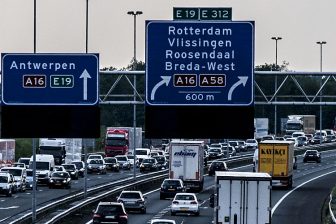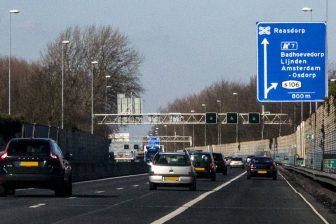Intelligent cars could save lives from 2009
Brussels, Belgium – Parliament adopted the report by Gary TITLEY (PES, UK) on the introduction of the eCall system by a large majority. Most speakers in the debate warmly welcomed the introduction by 2009 of an eCall system installed in vehicles which would use satellite technology to alert the nearest emergency services to the exact location of a vehicle in the event of an accident and which could save up to 2,500 lives a year.
Ecall would bring about a reduction of up to 15% in the gravity of injuries. MEPs, however, voiced concern on the unwillingness of some Member States to implement the eCall system as soon as possible. So far, a majority of Member States have been slow in the adoption and promotion of 112 as an emergency number. MEPs, as well as Commissioner Viviane REDING, called on these Member States to speed up the introduction of eCall. Mrs Reding said that infringement procedures will not be excluded.
The agonising wait for emergency services after a road accident could be cut by up to 50% while European road deaths could fall by 5-10% under road safety proposals set to be endorsed by Parliament. A new "eCall" system installed in vehicles will use satellite technology to alert the nearest emergency services to the exact location of a vehicle in the event of an accident. The system would work anywhere in the EU benefiting the 100 million people who travel abroad by car each year.
MEPs on the Committee on Transport and Tourism recommend that Parliament "supports and encourages" the European eCall initiative that "could save up to 2,500 lives a year and bring about a reduction of up to 15% in the gravity of injuries". This view comes in a non-binding own initiative report tabled by Gary TITLEY (PES, UK) on road safety and the introduction of the eCall system.
The report recommends that all European authorities include eCall information within their public road safety campaigns, and that "the large-scale-roll-out of eCall by 2009 is a priority of the eSafety initiative".
What is eCall?
Welcomed as "the first building block of intelligent car initiative", eCall promises to accelerate road-accident response time, reduce the severity of road accidents and therefore contribute "to the objective of reducing road deaths in the EU". As part of the eSafety initiative, the eCall scheme consists of a harmonisation of in-vehicle emergency call, Europe-wide. The initiative involves an eCall device fitted in road vehicles which is activated in the case of an accident, transmitting "an emergency call with data that goes directly to the nearest emergency call centre" thereby providing information on the location of the accident. In so doing, "the nearest emergency centre (the Public Safety Answering Point (PSAP)) is notified immediately, and knows exactly where to go", resulting in "a drastic reduction in the rescue time".
Currently, some privately developed systems of emergency call exist; however, their penetration of the trans-national market has been very limited. By contrast, "eCall aims to be introduced in all vehicles in Europe, for all trades and types, and to work anywhere the vehicle will be in Europe, thus giving service to more than 100 million persons that can travel abroad annually each year".
The likely benefits
The introduction of a European-wide eCall service "could save up to 2,500 lives a year and bring about a reduction of up to 15% in the gravity of injuries". Moreover, through its introduction, the report suggests that the annual external costs of road traffic could be reduced by up to €26 billion and the response time: "by approximately 40% in urban areas and approximately 50% in rural areas". The faster arrival of rescue teams enables a more efficient clearing of the accident therefore improving congestion levels. The report points out that even when "taking into account the necessary annual investments on the in-vehicle systems, to upgrade the PSAPs and to train the emergency services staff" a substantial cost-benefit savings should still accrue from the initiative.
The costs of the initiative
Nevertheless, the committee also points out the disparity which exists between the costs estimated by the Commission and those estimated by the industry. It therefore invites them "to pursue a deeper cost-efficiency analysis for every action to be undertaken to implement eCall". Whilst encouraging a "gradual introduction and large-scale roll-out of eCall", the committee is also aware that new technologies may prove costly and that consumers may be unwilling to pay for these, it thus "calls on all stakeholders to work together to define incentives to speed up the introduction of the eCall incentive". The report notes the fact that the costs involved may be particularly prohibitive in areas where the service is needed most – in rural or isolated areas.
What needs to be done?
The eCall system is based on the use of 112 (as an emergency number) and E112 (location information requirements in public wireless networks for emergency calls), therefore the committee calls on Member States to complete their implementation as soon as possible. Correspondingly, the committee regrets that Member States have been slow in the adoption and promotion of 112 as an emergency number. Furthermore, the report "stresses the importance of all member states signing the Memorandum of Understanding" – a memorandum produced by the eCall Driving Group ("a group established to produce a framework architecture and a business model for eCall") which aims to ensure the functioning of eCall in any EU State. It considers that, for any proper improvement to be realised, this memorandum should be "converted into a letter of intent, signed by all stake holders, as soon as possible".
U las zojuist één van de gratis premium artikelen
Onbeperkt lezen? Profiteer nu van de introductieaanbieding voor € 10,- per maand.
Bent u al abonnee?



